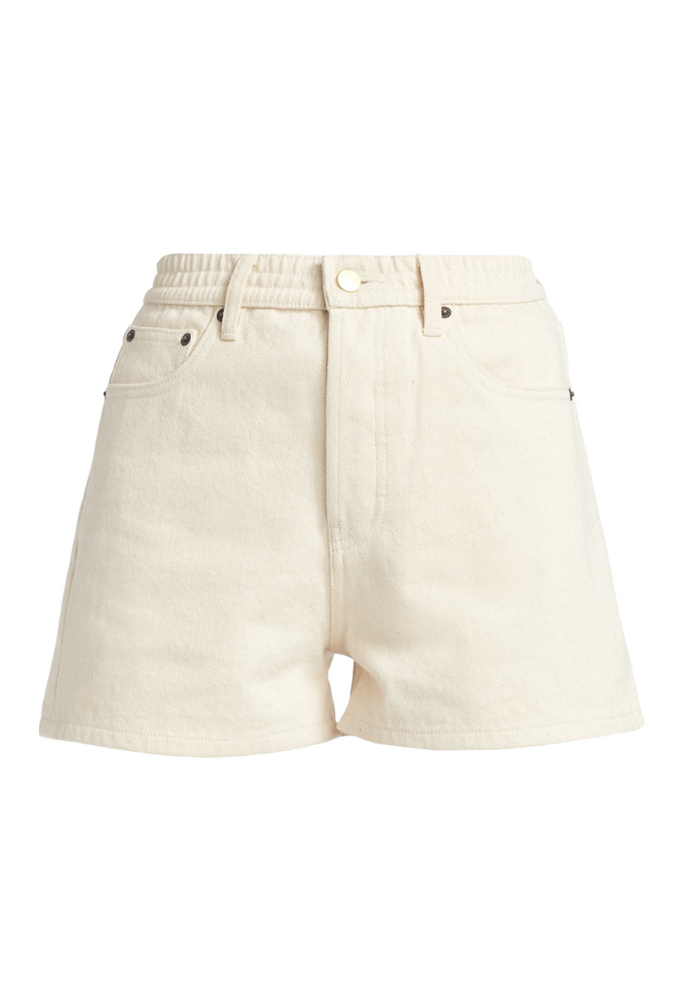ames in Khaki
100% Cotton

Have questions? Email us at info@stillhere.com or text us at +1 (917) 732-7998

Your waist measurement is the natural crease in your torso between the rib cage and hips.
When measuring, start at the smallest point of your waist; we call this your “true waist.” It's usually near or right above your belly-button.
Bring the tape measure all the way around your body to meet your starting point. Make sure it's not too tight and that it's measuring straight.
Check the number on the tape for your waist measurement.
Your hip measurement will be the widest part of your hips and butt.
When measuring your hips, make sure to put your feet together.
Bring the tape measure all the way around the widest part of your hips. Make sure it's not too tight and that it's measuring straight.
Check the number on the tape for your hip measurement.
The rise measurement is the distance between the top of the waistband and the crotch seam.
For measuring rise we suggest grabbing a pair of your favorite jeans to measure and compare it to.
Lay your jeans on a flat surface making sure they’re fully buttoned or zipped up.
At the center of the jean measure the distance from the top of the waistband down to the crotch seam.
Check the number on the tape for the rise measurement for comparison.
The inseam measurement refers to the distance between the crotch and the bottom leg opening.
For inseam measurements, we suggest grabbing a pair of your favorite jeans to measure and compare it to.
Lay your jeans on a flat surface.
Measure the length from the crotch seam all the way down to the bottom hem of the leg.
Check the number on the tape for the rise measurement for comparison.
The leg opening measurement refers to width at the very bottom of the leg.
For leg opening measurements, we suggest grabbing a pair of your favorite jeans to measure and compare it to.
Lay your jeans on a flat surface.
At the bottom-most point of your jeans, measure the distance across the leg from end to end.
Check the number on the tape for the rise measurement for comparison.
If you don’t have a soft measuring tape, you can use ribbon or string and then measure against a ruler.

